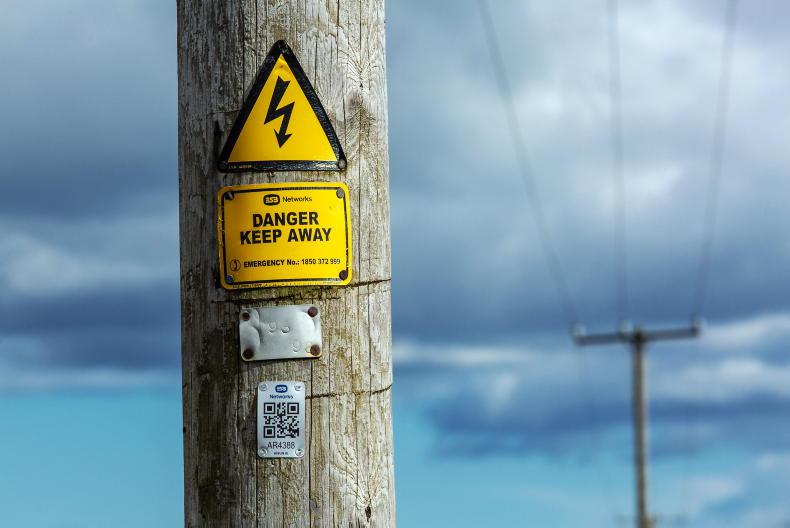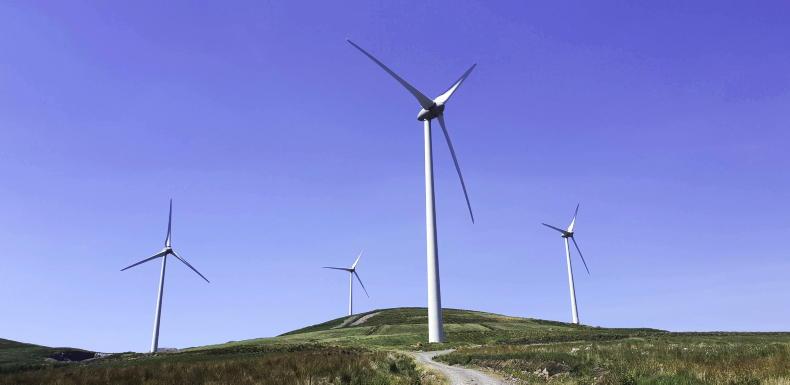Last week, I was delighted to receive an invitation to attend a special lecture by Eddie O’Connor, essentially the founder of the Irish wind energy sector. The lecture was part of the series of events around Trinity College’s 250th anniversary of the founding of its Historical Debating Society.
Eddie O’Connor’s lecture brought me up to date on the progress wind energy and the renewable energy sector has made over the last 30 years. At that stage, O’Connor was head of Bord na Móna and transformed the company. He has done the same to the world energy sector.
His clarity in his Trinity lecture was exemplary. Energy production from oil, gas or coal is by far the main source of greenhouse gases and, of course, the use of fossil fuels is all pervasive.
Eddie O’Connor put the cost of producing one unit (a kilowatt hour) of electricity from coal at about 8.5c (US$0.92), without attributing any pollution cost to coal-generated electricity. Modern large windmills are generating electricity at a cost of 4.1c a unit or less than half the cost. I was interested to hear that windmills on land have run into such opposition that he sees the new technology allowing floating rigs at sea to be the logical way for the wind energy sector to go.
At the moment he is involved in building wind energy installations in Chile, Senegal and Egypt.
While the cost of wind energy has continued to fall and its efficiency increase, the changes in the cost of solar-produced electricity have been staggering. The latest estimate in some of the most favourable locations such as Dubai, is that solar energy can be produced for as little as 1.5c/unit. This compares with a current electricity charge to the normal consumer of approximately 17c/unit in Ireland. There is now very little doubt that the potential for wind and solar energy in Ireland to continue to increase as a proportion of electricity use is real and as we go towards more electric cars and heating the scope for increased Irish-generated electricity will increase.
Up to now, one of the main problems with renewable energy was the intermittent nature of the supply and the lack of reasonably-priced battery storage capacity. Eddie O’Connor gave a figure of US$70/kWh as a battery cost, down from US$1,000 just a few years ago.
I took home two standout messages from the lecture:
Some oil will still be needed, especially for jet travel – biofuels from agricultural crops would be ideally suited.The ESB should introduce a visible net metering system – ie pay for the electricity farmers can produce over and above their own needs as it enters the grid.
Last week, I was delighted to receive an invitation to attend a special lecture by Eddie O’Connor, essentially the founder of the Irish wind energy sector. The lecture was part of the series of events around Trinity College’s 250th anniversary of the founding of its Historical Debating Society.
Eddie O’Connor’s lecture brought me up to date on the progress wind energy and the renewable energy sector has made over the last 30 years. At that stage, O’Connor was head of Bord na Móna and transformed the company. He has done the same to the world energy sector.
His clarity in his Trinity lecture was exemplary. Energy production from oil, gas or coal is by far the main source of greenhouse gases and, of course, the use of fossil fuels is all pervasive.
Eddie O’Connor put the cost of producing one unit (a kilowatt hour) of electricity from coal at about 8.5c (US$0.92), without attributing any pollution cost to coal-generated electricity. Modern large windmills are generating electricity at a cost of 4.1c a unit or less than half the cost. I was interested to hear that windmills on land have run into such opposition that he sees the new technology allowing floating rigs at sea to be the logical way for the wind energy sector to go.
At the moment he is involved in building wind energy installations in Chile, Senegal and Egypt.
While the cost of wind energy has continued to fall and its efficiency increase, the changes in the cost of solar-produced electricity have been staggering. The latest estimate in some of the most favourable locations such as Dubai, is that solar energy can be produced for as little as 1.5c/unit. This compares with a current electricity charge to the normal consumer of approximately 17c/unit in Ireland. There is now very little doubt that the potential for wind and solar energy in Ireland to continue to increase as a proportion of electricity use is real and as we go towards more electric cars and heating the scope for increased Irish-generated electricity will increase.
Up to now, one of the main problems with renewable energy was the intermittent nature of the supply and the lack of reasonably-priced battery storage capacity. Eddie O’Connor gave a figure of US$70/kWh as a battery cost, down from US$1,000 just a few years ago.
I took home two standout messages from the lecture:
Some oil will still be needed, especially for jet travel – biofuels from agricultural crops would be ideally suited.The ESB should introduce a visible net metering system – ie pay for the electricity farmers can produce over and above their own needs as it enters the grid. 








SHARING OPTIONS